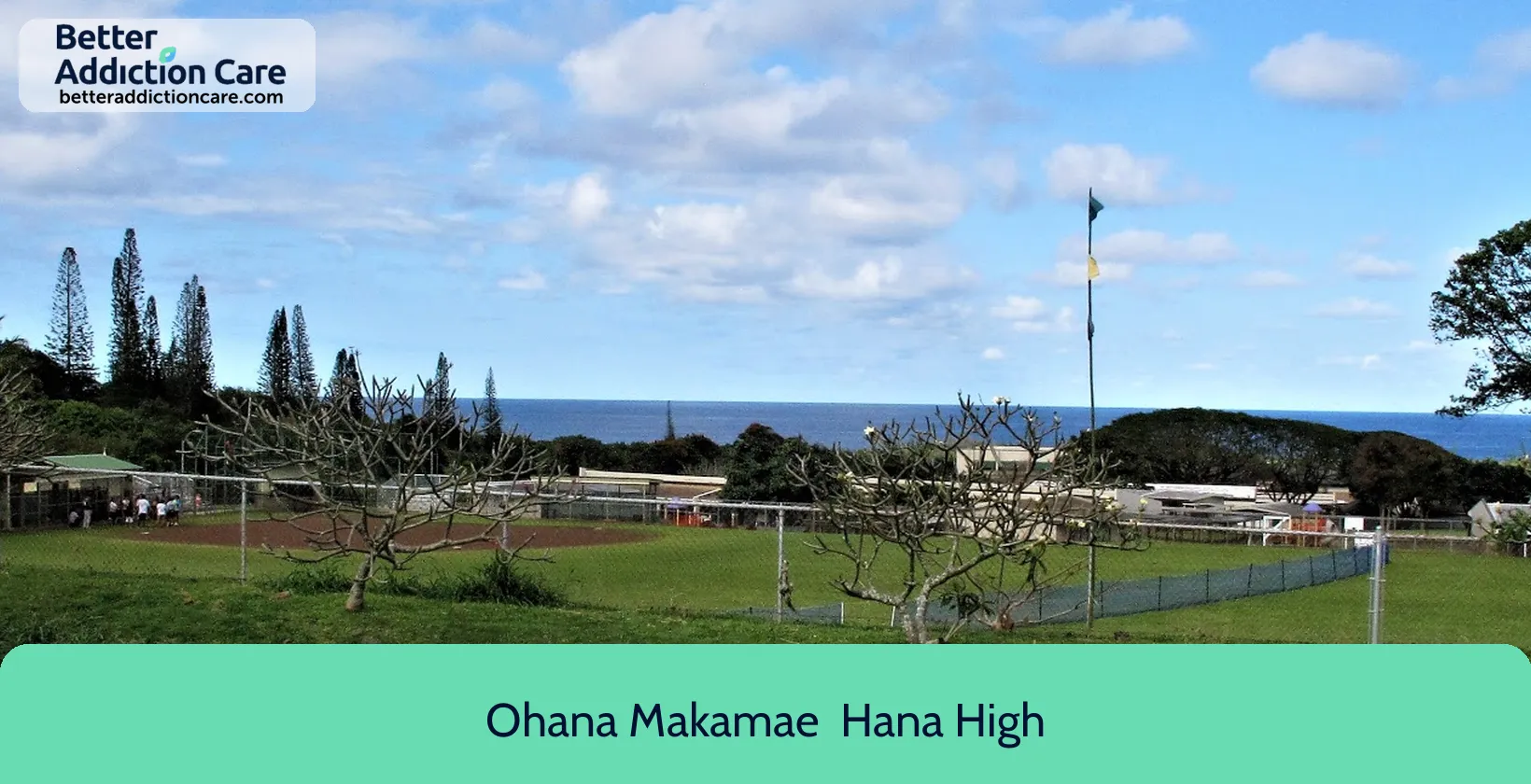Overview
Ohana Makamae - Hana High and Intermediate School is a substance abuse treatment center for people seeking treatment near Maui County. As part of their treatment modalities for recovery, Ohana Makamae - Hana High and Intermediate School provides substance use disorder counseling, smoking/vaping/tobacco cessation counseling, and group counseling during treatment. Ohana Makamae - Hana High and Intermediate School is located in Hana, Hawaii, accepting federal, or any government funding for substance use treatment programs for treatment.
Ohana Makamae - Hana High and Intermediate School at a Glance
Payment Options
- Federal, or any government funding for substance use treatment programs
- Cash or self-payment
Assessments
- Screening for tobacco use
- Comprehensive mental health assessment
- Comprehensive substance use assessment
- Outreach to persons in the community
- Screening for mental disorders
Age Groups
- Adolescents
- Young adults
- Children/adolescents
Operation
- State government
- Program Tailored for LGBTQ Clients
Treatment At Ohana Makamae - Hana High and Intermediate School
Treatment Conditions
- Alcoholism
- Mental health treatment
- Substance use treatment
- Co-occurring Disorders
Care Levels
- Outpatient
- Outpatient day treatment or partial hospitalization
- Regular outpatient treatment
- Aftercare
Treatment Modalities
- Substance use disorder counseling
- Smoking/vaping/tobacco cessation counseling
- Group counseling
- 12-step facilitation
- Intervention Services
Ancillary Services
Special Programs
- Clients with co-occurring mental and substance use disorders
- Clients with HIV or AIDS
- Clients who have experienced trauma
- Clients who have experienced sexual abuse
Contact Information
Read our Most Recent Article About Drug Addiction
DISCLAIMER: The facility name, logo and brand are the property and registered trademarks of Ohana Makamae - Hana High and Intermediate School, and are being used for identification and informational purposes only. Use of these names, logos and brands shall not imply endorsement. BetterAddictionCare.com is not affiliated with or sponsored by Ohana Makamae - Hana High and Intermediate School.
Your Addiction Doesn't Have To Define Who You Are.
You deserve high-quality treatment and a fulfilling life in recovery.
By calling us, you agree to our Terms & Conditions









